Power Articles
Industry Elevating Content
Choosing Exterior Door Hardware
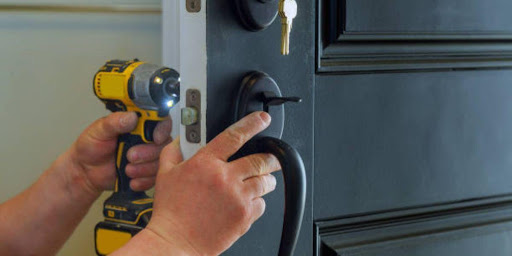
PowerArticles
Nov. 6, 2023
Selecting the right exterior door hardware is a crucial decision for home improvement companies specializing in window and door installations. The choice of door hardware not only enhances the aesthetics of a property but also plays a vital role in security and functionality. From door handles and locks to hinges and finishes, the hardware you choose can significantly impact a customer’s satisfaction with their newly installed doors. In this guide, we’ll explore the essential factors to consider when making these decisions, ensuring that your installations not only look great but also provide the utmost safety and convenience for homeowners.
Types of Exterior Door Hardware
Door Handles and Knobs
When it comes to door handles and knobs, there are distinct differences to consider. Door handles are generally lever-shaped and provide a more ergonomic grip, making them easier to use for people of all ages. On the other hand, knobs are round and require a twisting motion, which may not be as convenient for those with limited hand strength or mobility.
Factors to consider when choosing handles/knobs include the door’s style and the user’s preferences. Handles are often favored for modern or contemporary doors, while knobs can complement traditional or antique designs. It’s essential to select hardware that aligns with the door’s aesthetics and the end user’s needs.
Deadbolts and Locks
Deadbolts and locks are critical for home security. There are various types to choose from, such as keyed locks, electronic locks, and more. Keyed locks rely on physical keys, electronic locks use codes or smart technology, and combination locks require a specific sequence of numbers or symbols.
When selecting locks, security considerations should be paramount. Evaluate the area’s crime rate and the level of protection needed. Electronic locks can provide added security with features like remote access and temporary codes. However, traditional keyed locks are often a reliable choice. Ensure that the lock meets industry standards for security, and consider installing a deadbolt in addition to the primary lock for an extra layer of protection.
Hinges and Accessories
Hinges play a pivotal role in how a door operates. Different types of hinges, such as butt hinges, pivot hinges, and continuous hinges, have varying applications. Butt hinges are common for residential doors, pivot hinges are suitable for heavy doors, and continuous hinges offer seamless support along the door’s height.
Additionally, exterior doors can be enhanced with various accessories like door knockers, peepholes, and decorative plates. Door knockers provide a traditional touch and announce visitors, while peepholes offer a secure way to view outside without fully opening the door.
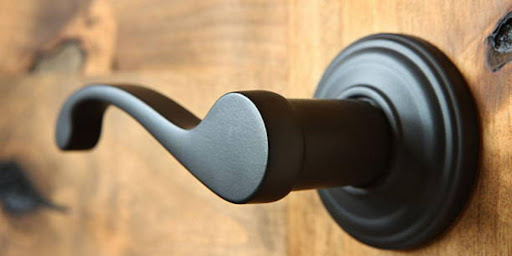
Materials and Finishes
Common Materials
Exterior door hardware is available in various materials, including brass, stainless steel, bronze, and more. The choice of material can significantly impact the hardware’s durability and aesthetics. Brass, for instance, offers a timeless and elegant look, while stainless steel excels in corrosion resistance and durability.
Considerations for Weather Resistance
Weather resistance is crucial, especially for exterior door hardware exposed to the elements. Stainless steel and bronze are excellent choices for resisting rust and corrosion, making them ideal for coastal or humid regions. When selecting hardware, prioritize materials that can withstand your local climate conditions to ensure long-term functionality and appearance.
Matching Hardware with the Door’s Material and Style
To create a harmonious and attractive look, it’s important to match the hardware with the door’s material and style. For wooden doors, warm tones like brass or bronze can complement the natural look. Modern doors often pair well with sleek stainless steel hardware. Ensure the hardware’s finish complements the door’s aesthetics for a cohesive design.
Security and Durability
Importance of Durable Hardware
Durable exterior door hardware is essential to ensure it stands up to wear and tear over time. High-quality materials and finishes can significantly impact longevity. Choose hardware that will withstand daily use and exposure to the elements.
Choosing Hardware that Enhances Security
When considering security, choose hardware that enhances the overall safety of the property. Deadbolts, sturdy locks, and secure hinges are key components. Always prioritize security when making hardware selections, especially for exterior doors.
Warranty and Maintenance Considerations
Look for hardware with warranties to provide peace of mind. Additionally, establish a regular maintenance routine to keep the hardware functioning optimally. Lubricate moving parts, tighten screws, and periodically inspect and replace components as needed to ensure the hardware’s longevity.
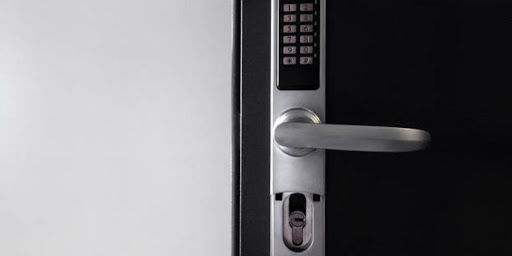
Aesthetics and Style
When choosing exterior door hardware, considering aesthetics and style is crucial for enhancing the overall look of a home.
Coordinating hardware with the home’s architecture
It’s essential to select door hardware that harmonizes with the architectural style of the house. For instance, a sleek and modern lever handle may not complement the aesthetics of a traditional, Victorian-style home. The hardware should blend seamlessly, whether it’s a colonial, craftsman, contemporary, or other architectural style. This cohesion not only improves the visual appeal but also ensures a balanced and cohesive design that leaves a lasting impression.
Finishes and colors
The finishes and colors of door hardware play a significant role in the style of your home’s exterior. Popular finishes include brass, nickel, chrome, bronze, and black. Choosing the right finish can make a bold statement or create a subtle, elegant look. It’s essential to consider the existing color palette of your home, siding, and trim to make the hardware selection that complements or contrasts effectively. The right choice can uplift the overall aesthetics and make your home stand out.
Leveraging hardware for curb appeal
Exterior door hardware can be a powerful tool to boost curb appeal. A stylish and well-chosen door handle, knocker, and mailbox can create an inviting entrance. Leveraging hardware to improve curb appeal involves making strategic selections that reflect your home’s character and your personal style. A stunning front door, coupled with elegant hardware, can make a significant difference and add value to your home.
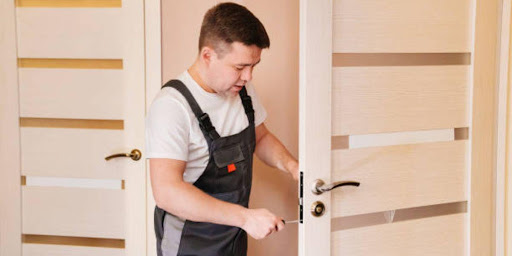
Accessibility and ADA Compliance
Incorporating accessibility and adhering to ADA (Americans with Disabilities Act) compliance is not only ethically responsible but also essential in the realm of exterior door hardware.
Door handle height and design
When installing or replacing door hardware, consider the height and design of the handles. For improved accessibility, the handles should be easy to reach, grasp, and operate for people of all abilities. Lever handles are often preferred over doorknobs because they are more accessible, allowing for easier use and compatibility with ADA guidelines.
Lever handles vs. doorknobs
Lever handles are a better choice in terms of accessibility compared to traditional doorknobs. They are easier to use, particularly for those with limited hand strength or dexterity. Lever handles are in line with ADA requirements, making them a practical choice for homeowners and businesses aiming to ensure accessibility.
ADA requirements for public buildings
Public buildings must adhere to ADA requirements when it comes to exterior door hardware. This includes ensuring that the hardware is accessible to individuals with disabilities. Compliance involves specific height, force, and clearance measurements, which should be strictly followed for public safety and inclusivity.
Installation and Compatibility
Ensuring proper installation and compatibility of exterior door hardware is paramount for a secure and efficient entry system.
Ensuring compatibility with the door
It’s crucial to select hardware that fits the door’s thickness, material, and design. Ensuring compatibility is essential to guarantee that the hardware functions correctly and securely. Compatibility issues can lead to installation problems and may compromise the door’s integrity.
DIY vs. professional installation
Home improvement companies should consider whether to opt for DIY or professional installation. While DIY projects are cost-effective, professional installation ensures that the hardware is correctly placed and operates smoothly. For complex or high-traffic doors, professional installation is often the preferred choice.
Aligning with industry standards
Exterior door hardware should meet industry standards for security, durability, and quality. It’s essential for home improvement companies to choose hardware that complies with relevant industry standards to ensure the safety and longevity of the door system.
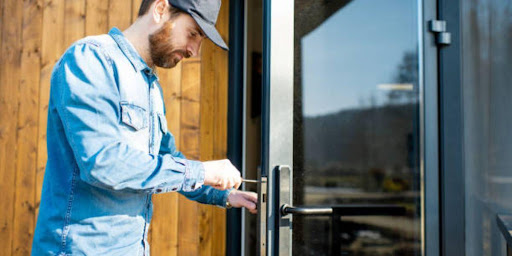
Conclusion
In conclusion, when it comes to choosing exterior door hardware for your home improvement projects, it’s essential to prioritize both functionality and aesthetics. Selecting high-quality hardware that can withstand the elements while enhancing the overall look of the door is key. Home improvement companies should consider factors like durability, security features, and design to meet the diverse needs and preferences of homeowners. By offering a range of options and guiding customers through the decision-making process, these companies can ensure that their clients not only have safe and secure entryways but also doors that make a stylish statement for their homes.
Published By
PowerArticles
Nov. 6, 2023